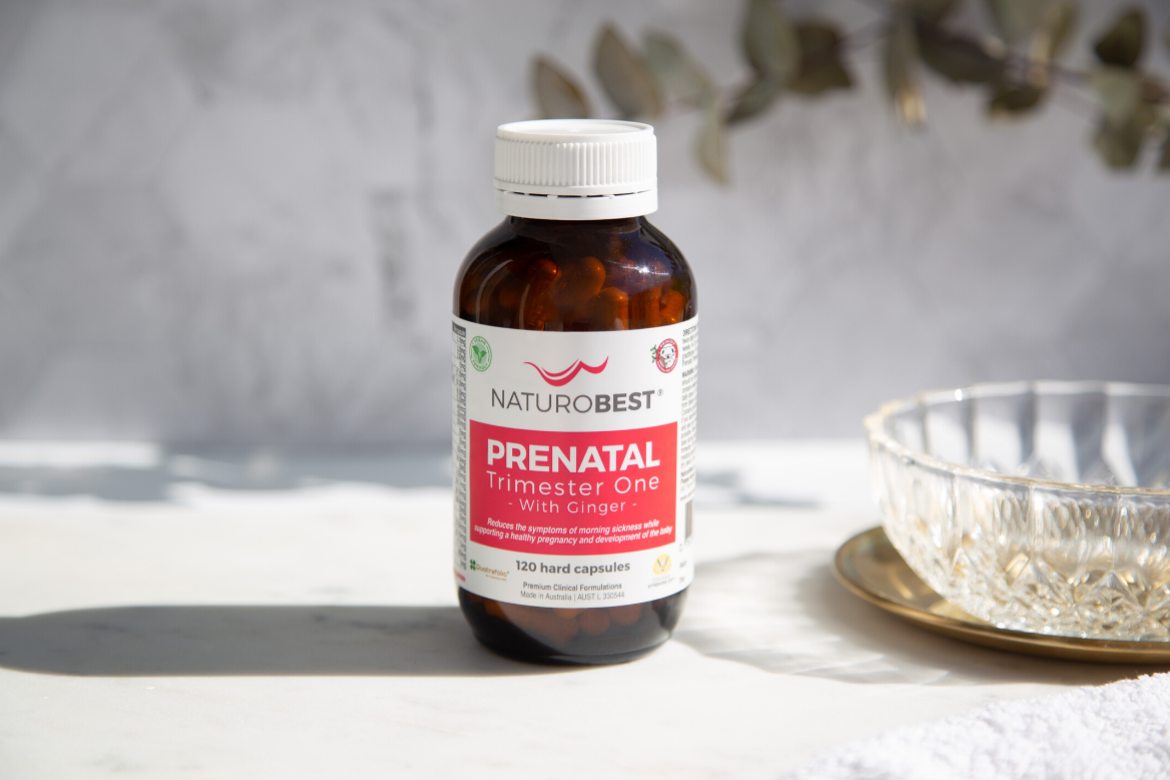After the initial excitement of a positive pregnancy test, misery can soon kick in around week 6 of pregnancy when morning sickness appears.
As many as 85% of women suffer from morning sickness and it can be completely debilitating. It ranges from mild to severe nausea, and vomiting can occur several times a day. Severe morning sickness is also known as hyperemesis gravidarum.
There are several known factors that can increase the likelihood of morning sickness. Some of these are unavoidable, such as being under 24 years old, having a girl, or carrying twins (or more!)
Iodine
The pregnancy hormone HCG stimulates a woman’s thyroid in the first trimester, which is known to aggravate the symptoms of morning sickness.
In pregnancy, the recommended daily intake of iodine is 220 micrograms. This should come from a woman’s diet and she can also take supplements if required. Supplementing with this amount, however, may be too high for some women in the first trimester. There is a chance that her thyroid could become overstimulated and this could lead to an increase in nausea and/or vomiting.
The World Health Organisation recommends that all pregnant women supplement their diet with 150 micrograms of iodine daily. This is the amount found in NaturoBest’s Prenatal Trimester One with Ginger.
Iron Supplements
Iron supplements can aggravate the symptoms of nausea and vomiting in pregnancy, however most prenatal supplements contain it. This is because iron supplementation is essential later on in pregnancy, due to the increase in blood volume.
Iron supplementation is usually unnecessary in the first trimester, especially if a woman has followed a preconception care plan and boosted her iron stores prior to becoming pregnant.
Tips to ease the symptoms of morning sickness
Both vitamin B6 and ginger have been proven in several randomised controlled trials to reduce the frequency and severity of nausea and vomiting in pregnancy. The recommended daily dose is 75mg of vitamin B6 and/or 1300mg of ginger.
Stabilising blood sugar helps to reduce symptoms of morning sickness
It is recommended that pregnant women eat frequently, preferably every 2 hours. Snacking on almonds and other nuts can stabilise blood sugar and eating foods high in chromium such as apples, raisins, nuts and cheese can help too.











